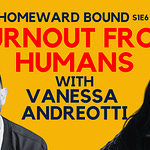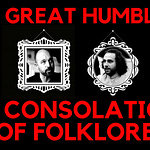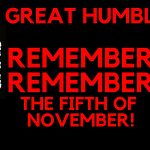After a long summer of counselling to recover from the sight of Sean Connery’s red mankini, Ed and Dougald are reunited to talk about green populism, why the world isn’t a giant Amazon store, hospicing dance music and the political language of love. (Or was that the love language of politics?)
Shownotes
What have we been up to?
Ed’s been thinking about “bystander leadership”: how interventions by bystanders successfully change the course of events.
Back in May, he went Singing With Nightingales with the folk singer Sam Lee and friends.
A visit to Lambay Island – where he runs an annual writing retreat – prompted him to revisit the story of the RMS Tayleur, otherwise known as “the first Titanic”. One of the first iron-clad clipper ships, her compass had not been properly adjusted to take account of the effect of the iron hull.
Dougald is deep in writing and currently surrounded by a pile of books about “culture”, which Raymond Williams identifies as “one of the two or three most complicated words in the English language” (Keywords: A Vocabulary of Culture and Society).
Earlier in the summer, he travelled to Italy for a gathering of the friends of Ivan Illich.
What have we been reading?
Ed introduces Brian Eno and Bette A’s What Art Does: An Unfinished Theory.
Dougald has also been revisiting Brian’s 1996 definition of culture as “everything we don’t have to do” and connects this to Ellen Dissanayake’s books, What Is Art For? and Homo Aestheticus which develop a fascinating evolutionary account of the centrality and origins of art within human behaviour.
Ed has been reading Robert Macfarlane’s new book, Is a River Alive? and he passes on a quote which Macfarlane uses from Alexis Wright’s essay, ‘The Inward Migration in Apocalyptic Times’.
Ed also talks about Jay Griffiths’s How Animals Heal Us.
Dougald was introduced to Jean Giono’s Joy of Man’s Desiring by Jack Barron who said it was like Ivan Illich and John Berger got together and wrote a novel – a description to which it lives up.
Make Populism Green Again
A few weeks back, Dougald sent Ed a message asking, “Did we break the Green Party?”
We trace the line that runs back from the election of Zack Polanski as the party’s new leader to an episode we made in January 2024, ‘Make Populism Good Again?’ After the UK general election that July, Ed hosted a gathering of Green thinkers to discuss where the party went next where they took up this thread about green populism, leading to a series of think pieces in late 2024, and then a successful leadership challenge from a candidate making this argument.
It’s early days, but Zack’s leadership seems to be off to a good start. Ed mentions his Question Time appearance and Dougald recalls the George Monbiot episode, where we discussed the importance to the environmental movement of having a voice that was capable of handling the brutal conduct of public discourse in the UK media.
We discuss Mary Harrington’s The Viral Mandate of Heaven, in which she identifies Zack and Zohran Mamdani as two leftwing examples of the kind of “box office” political legitimacy which works in a “digital-first” culture.
If Reform can flip the state of politics on the right and become the main contender, doesn’t that make it easier to imagine the same thing happening on the other side? One poll last week had the Greens on 15%, only two points behind Labour. What if the next UK general election ends up as a battle between Reform and the Greens?
Where are we at in the timeline?
How do you find your bearings in an environment where you’re constantly stimulated to max out your outrage or emotional investment in “the Current Thing”?
Dougald talks about an attitude – exemplified by Gordon White of Rune Soup – that emphasises a sober attention to “where we’re at in the timeline”.
We talk about the rerouting of resources to rearmament in Europe, but also the point made by Aurelien that “European decision-makers are now discovering that the world is not a gigantic Amazon store from which you can order anything you like.”
What time is LOVE?
Jay Springett sent us a text from xin called “hospicing dance music” and we talk about seeing ideas from Hospicing Modernity and At Work in the Ruins getting put to use in different contexts.
Dougald mentions another example of this, the recent conversation between Iona Lawrence of The Decelerator and Elizabeth Oldfield, ‘Finding Steadiness in a Time of Endings’.
Ed talks about Love, Anger and Betrayal, the book that Jonathan Porritt has written, based on a year of working with young activists who were part of Just Stop Oil.
The theme of love takes us to the new journal Romanticon – co-founded by Anthony Galluzzo, whose book Against the Vortex was the starting point for our last episode. Dougald wrote the journal’s inaugural essay, ‘Fables of the Reconstruction’.
Another Romanticon contributor, Justin Smith-Ruiu of The Hinternet wrote an essay called ‘How to Change the World for Real’ that invokes the language of love as politics in Martin Luther King, Hannah Arendt and James Baldwin.
We talk about David Bentley Hart’s ‘The Genealogy of Genealogies’, which culminates in a wonderful passage about gifts as “the currency of love” – and this connects to Adam Wilson’s story of the young father visiting the Gratitude Feast at Sand River Community Farm for the first time who expresses his wonder, “It’s like you all are creating an irony-free zone.”
And Ed draws the episode to a close with Kae Tempest’s poem, ‘The Point’.
Thanks, everyone, for listening and sharing and supporting our work in multiple ways. Check out more episodes of The Great Humbling and Homeward Bound at homewardbound.org. Learn more about Ed’s work on his website, and read more from Dougald at his Substack, Writing Home, where you can support the making of this podcast by becoming a paid subscriber.









